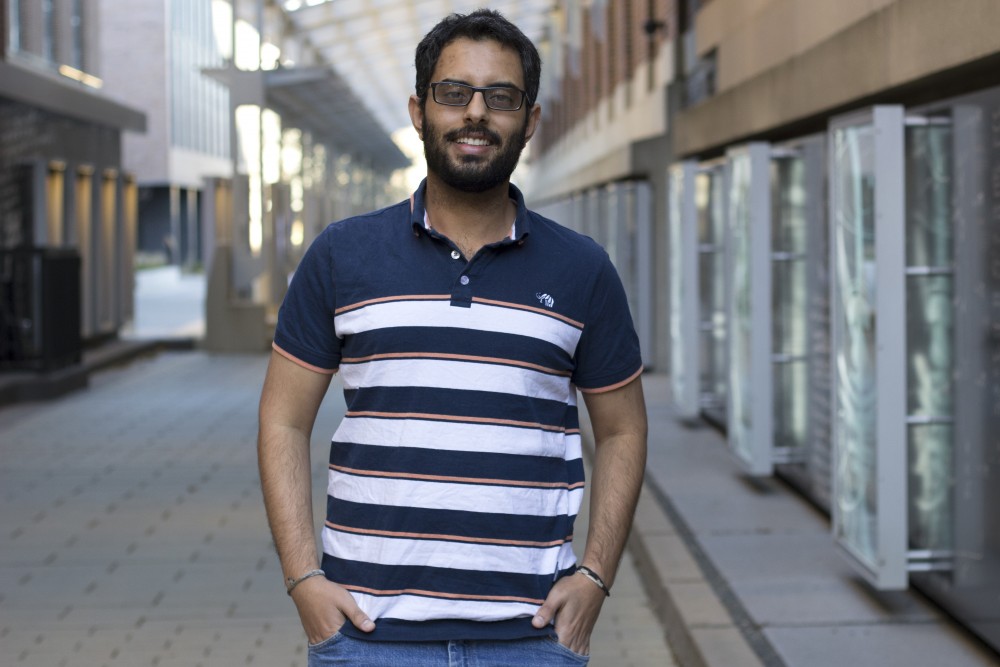Even though Daniel Mendonza grew up speaking English, when he got to the U.S., he said he lacked the confidence to speak with fellow mechanical engineering students at the University of Minnesota.
Through workshops and programming put on by the University’s Center for Educational Innovation, Mendonza and other non-native English speakers have the chance to improve often-overlooked language skills.
At a meeting Monday, more than 20 students and faculty gathered in a conference room in Walter Library for CEI’s last workshop of the semester.
The monthly workshops focus on different aspects of speaking, such as pronunciation and rhythm, said Colleen Meyers, a CEI educational specialist.
“Our goal is to get them to the level where they’re understandable to their students,” Meyers said.
Meyers and co-educational specialist Elena Stetsenko lead the workshops and both instruct an international teaching assistants course each year.
The center started in the 1980s from a state mandate requiring teaching assistants to be certified to read, write and speak the English language.
Incoming international students take a language skills exam to measure their English skills at an advanced level. Some students score highly on the exam, but still have minor problems in their speaking, which pushed Meyers and Stetsenko to host the workshops in addition to the ITA course.
Mendonza, a first-year master’s student in mechanical engineering, grew up in India and said he is grateful that the University has resources for students to work on their English.
“If I get a teaching assistantship … I will need these skills,” Mendonza said, who still feels he is at an advantage because he grew up speaking Marathi, English and Hindi, which is his native language.
He added that the workshops have been helpful to him since Hindi is a fast language, and he often speaks too quickly.
Matheus Araujo, a TA and first-year Ph.D. in computer science, is a student in Meyers’ class this semester.
Araujo said the class has helped him gain confidence while teaching. The course has midterms throughout the semester where students “micro-teach,” or teach a short lecture for nine minutes.
Araujo said the class expands beyond language to cultural awareness and how to be an effective instructor.
“They know each situation that might happen to you when you are a TA and they … teach you how to deal with the different scenarios,” he said.
Some students aren’t familiar with the teaching styles used in the U.S., and the ITA program also teaches cross-cultural awareness, Meyers said.
Coming from Brazil, there weren’t as many cultural differences as some of his peers experienced, but Araujo said he noticed students at the University are more blunt.
“Brazilians like to talk about the answer, but we are not so direct,” he said.
Despite cultural barriers, Meyers said the students are highly motivated, and many receive teaching awards after completing the course.
“There are some [teaching assistants] in my class that have put my teaching to shame,” she said.








